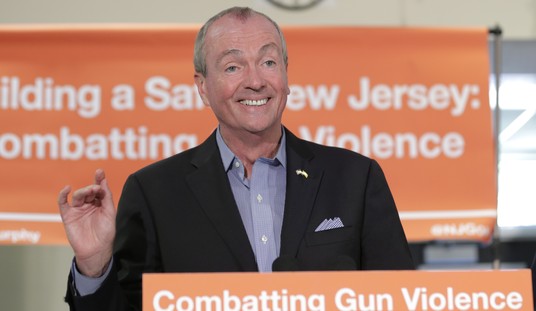It turns out Mitch McConnell was right about the “gift” of the Kavanaugh hearings in the midterm cycle. In an open-ended question on a new Survey Monkey poll co-sponsored by the Washington Post, the name Kavanaugh barely comes up in responses. However, the name “Democrat” does, a lot more than it did the month prior to Brett Kavanaugh’s hearings and the national show trial to which he was subjected:
After Brett M. Kavanaugh’s confirmation to the Supreme Court, Senate Majority Leader Mitch McConnell (R-Ky.) called opponents of his nomination “the mob” and sardonically thanked them for energizing Republicans ahead of the midterm elections.
“It’s been a great political gift for us,” McConnell said.
A new survey bears out some of the glee McConnell exhibited in his victory lap: The numbers suggest that the debate may have led Republicans to increasingly focus on their dislike of Democrats when thinking about voting in November.
The SurveyMonkey poll finds 41 percent of Republicans mentioned “Democrats” or the Democratic Party when explaining the reason for their congressional vote, more than any other single word and up 15 percentage points from August, when 28 percent said the same.
Gee, I wonder why that might be? Prior to the Kavanaughcalypse, Democrats were more motivated by their political opponents than the opposite, with 34% saying that Republicans were the reason they would vote in the midterms. That only went up two points in the latest iteration, to 36%. Interestingly, though, the number of independents mentioning the GOP as a reason for their vote declined by three points, 26% to 23%, while mentions of Democrats ticked up a point to 22%.
So the Kavanaugh effect is not just real, it’s also unidirectional. Some assumed that the fight would inflame both sides, but in this poll anyway, it has only boosted Republican enthusiasm. It’s still an open question if whether it will sustain all the way through to Election Day, but it might not need to do so. Early voting means people can thunder to the polls practically any time between the beginning of October and November 6th in many jurisdictions. It wouldn’t be surprising if much of this has already appeared in that early-voting process.
Scott Clement points out another reason why the anger likely won’t dissipate after Kavanaugh’s confirmation, as some suspected it might:
Some Republicans described general criticisms of Democrats as being extreme or dangerous, saying the party is “ruining this wonderful country,” that “Democrats are anti-American” or that “Democrats are destroying liberty.” A Virginia Republican said: “Democrats are deranged. Offer no ideas. Only hate.”
This broad range of Republican voter rationales suggests that the Kavanaugh debate may have reinforced a range of negative views toward Democrats being obstructionist, extreme or un-American rather than specific concerns about handling the Supreme Court nomination process. In fact, very few respondents of any partisan background mentioned Kavanaugh, the Supreme Court or other related terms in explaining their vote.
In other words, the Kavanaughcalypse served as a reminder to a complacent party base about the nature of Democratic Party opposition. The follow-on demands for more “investigation” and impeachment helps keep that reminder fresh, too. As Newt Gingrich put it last night when talking with Fox’s Laura Ingraham, Democrats have been selling anger — and are making themselves the “scary” party. Even if Republicans aren’t perfect, at least they’re in control of themselves. Mostly, anyway.
Newt Gingrich: The average American is going to look at what is happening and conclude that Republicans are doing a pretty darn good job and the Democrats are frankly kind of scary (via @IngrahamAngle) pic.twitter.com/j7gjYtQ3yh
— FOX & friends (@foxandfriends) October 17, 2018








Join the conversation as a VIP Member